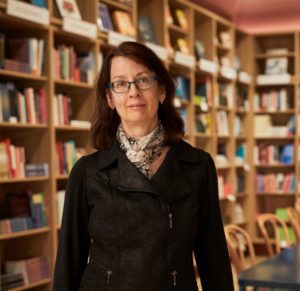Article Summary by Deborah Lupton
This article reports the findings of a study using an innovative approach to understanding people’s beliefs and practices: the story completion method. This method asks people to complete story ‘stems’, writing about a fictional character. The completed narratives are then analysed for the shared cultural norms and discourses they revealed. As this method involves fictional characters, it can be very useful in addressing sensitive issues. Story writers draw on their own experiences and beliefs to complete the stories, but in a way that does not require them to directly reveal aspects about themselves. The study involved people using an online platform to write stories about three characters, each of whom were facing a health dilemma. The narratives the participants generated highlighted the emotional and sensory dimensions of seeking health information, including not only the importance of online sources but also face-to-face relationships and expertise. The stories showed that achieving wellness and recovery, or making positive changes, were facilitated by finding helpful information both on- and off-line, making connections with others and finding therapeutic places and spaces.
Read the article on the Medical Humanties journal website: https://mh.bmj.com/content/47/1/68
 Deborah Lupton is SHARP Professor in the Faculty of Arts & Social Sciences, UNSW Sydney, working in the Centre for Social Research in Health and the Social Policy Research Centre and leading the Vitalities Lab. Her research is interdisciplinary, spanning sociology and media and cultural studies. She is the author/co-author of 18 books, the latest of which are Data Selves (2019) and The Face Mask in COVID Times (2021). She has also edited/co-edited a further eight volumes. Lupton is Leader of the UNSW Node of the Australian Research Council Centre of Excellence for Automated Decision-Making + Society. She is a Fellow of the Academy of the Social Sciences in Australia and holds an Honorary Doctor of Social Science degree awarded by the University of Copenhagen.
Deborah Lupton is SHARP Professor in the Faculty of Arts & Social Sciences, UNSW Sydney, working in the Centre for Social Research in Health and the Social Policy Research Centre and leading the Vitalities Lab. Her research is interdisciplinary, spanning sociology and media and cultural studies. She is the author/co-author of 18 books, the latest of which are Data Selves (2019) and The Face Mask in COVID Times (2021). She has also edited/co-edited a further eight volumes. Lupton is Leader of the UNSW Node of the Australian Research Council Centre of Excellence for Automated Decision-Making + Society. She is a Fellow of the Academy of the Social Sciences in Australia and holds an Honorary Doctor of Social Science degree awarded by the University of Copenhagen.